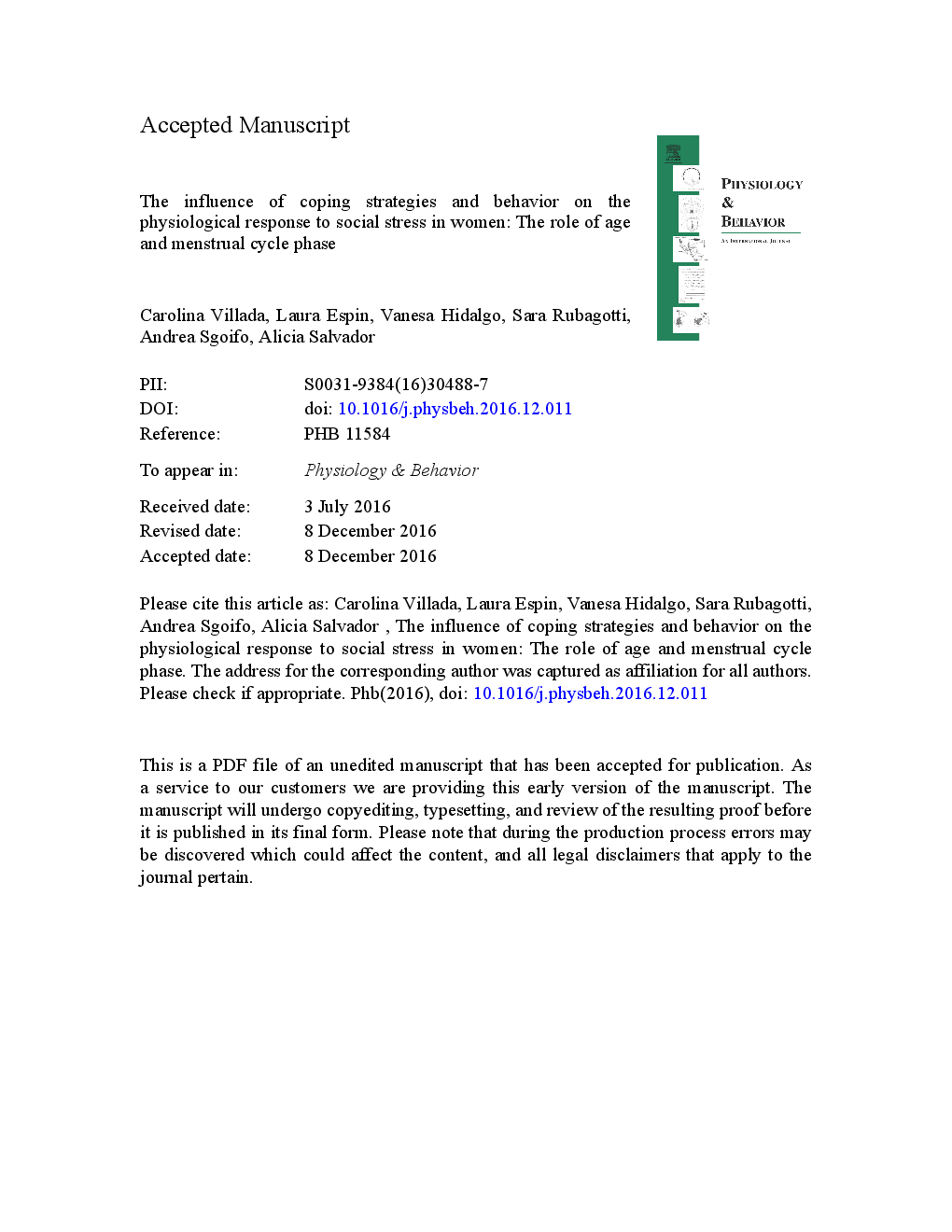ترجمه فارسی عنوان مقاله
تأثیر استراتژی های مقابله ای و رفتار بر پاسخ فیزیولوژیکی به استرس اجتماعی در زنان: نقش سن و جنس مرحله چرخه
عنوان انگلیسی
The influence of coping strategies and behavior on the physiological response to social stress in women: The role of age and menstrual cycle phase
| کد مقاله | سال انتشار | تعداد صفحات مقاله انگلیسی |
|---|---|---|
| 125423 | 2017 | 44 صفحه PDF |
منبع

Publisher : Elsevier - Science Direct (الزویر - ساینس دایرکت)
Journal : Physiology & Behavior, Volume 170, 1 March 2017, Pages 37-46

